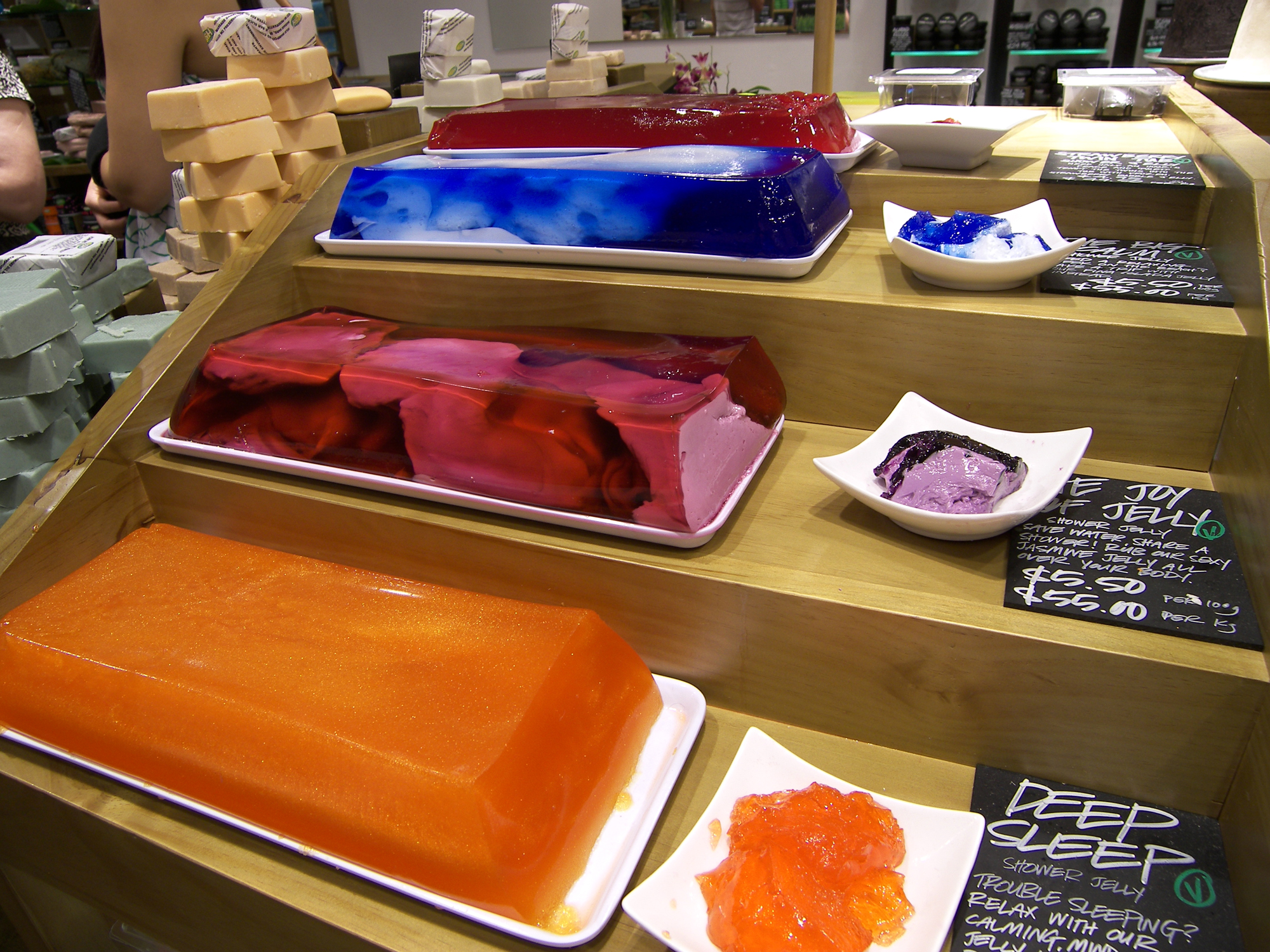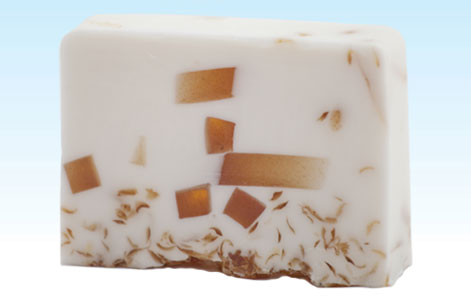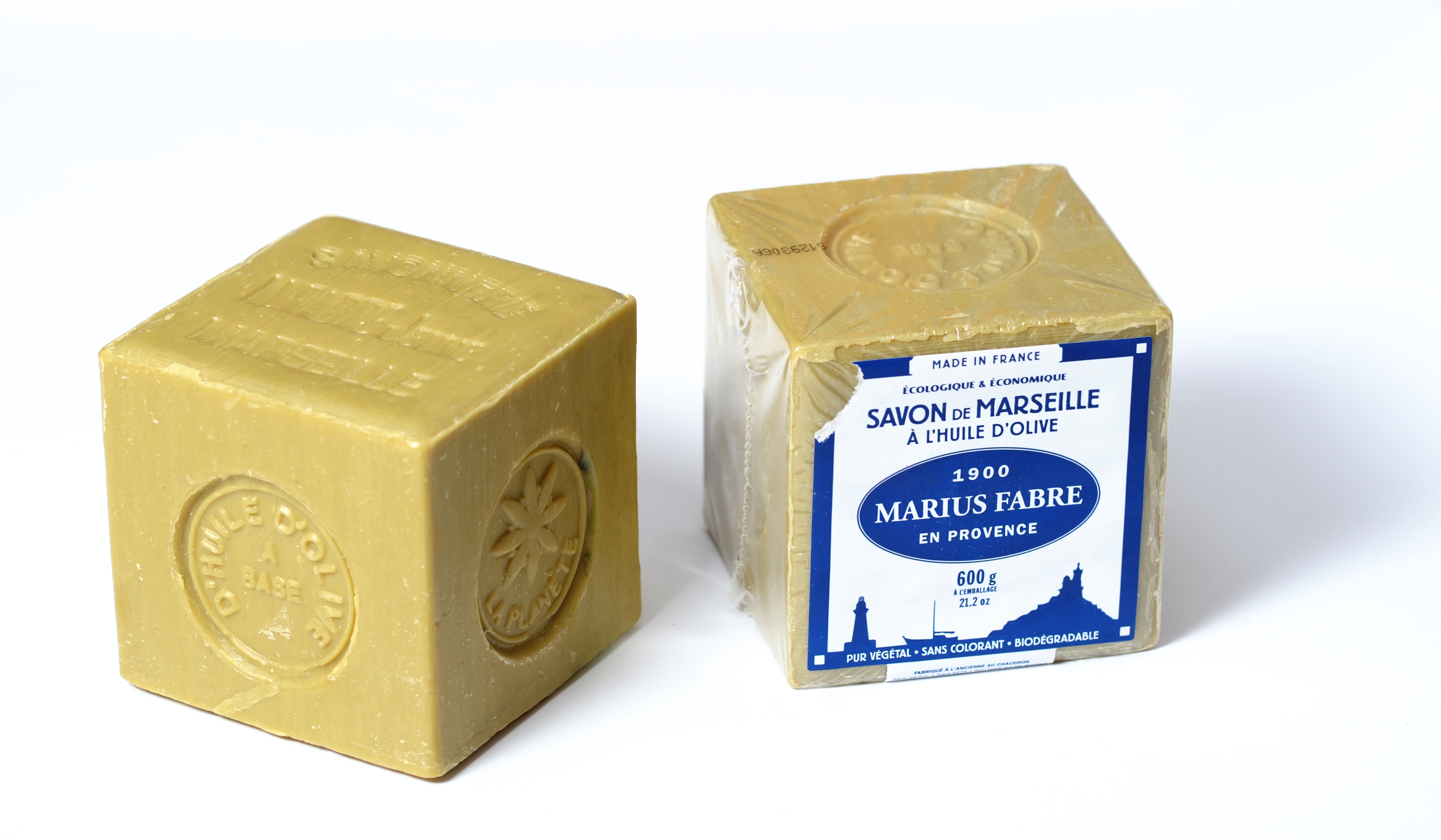|
Vegan Soap
Vegan soaps (or vegetable soaps) are soaps made from fats or oils of vegetable origin rather than from saponified animal fats. The Vegan Society's definition of veganism encourages consumers to avoid all products containing ingredients derived from animals, so vegan soaps might include aloe vera, castor oil, cornstarch, corn syrup Corn syrup is a food syrup that is made from the starch of corn/maize and contains varying amounts of sugars: glucose, maltose and higher oligosaccharides, depending on the grade. Corn syrup is used in foods to soften Mouthfeel, texture, add vol ..., pectin, or essential oils, while excluding animal products such as lanolin, gelatin, lard, and tallow. Examples of traditional vegan soaps include: Aleppo soap, Castile soap, Marseille soap, Nabulsi soap, and some glycerin soaps. Vegans may boycott soaps tested on animals. The Vegan Society defines veganism as excluding "—as far as is possible and practicable—all forms of exploitation o ... [...More Info...] [...Related Items...] OR: [Wikipedia] [Google] [Baidu] |
Tallow
Tallow is a rendered form of beef or mutton suet, primarily made up of triglycerides. In industry, tallow is not strictly defined as beef or mutton suet. In this context, tallow is animal fat that conforms to certain technical criteria, including its melting point. Commercial tallow commonly contains fat derived from other animals, such as lard from pigs, or even from plant sources. The solid material remaining after rendering is called cracklings, greaves, or graves. It has been used mostly for animal food, such as dog food. In the soap industry and among soap-making hobbyists, the name tallowate is used informally to refer to soaps made from tallow. Sodium tallowate, for example, is obtained by reacting tallow with sodium hydroxide (lye, caustic soda) or sodium carbonate (washing soda). It consists chiefly of a variable mixture of sodium salts of fatty acids, such as oleic and palmitic.Ruth Winter (2007): ''A Consumerýs Dictionary of Household, Yard and Office ... [...More Info...] [...Related Items...] OR: [Wikipedia] [Google] [Baidu] |
Soaps
Soap is a surfactant cleaning compound used for personal or other cleaning. SOAP is a computer network protocol (originally an acronym for Simple Object Access Protocol), a protocol specification in computer networks. Soap or SOAP may also refer to: Arts and entertainment Television * Soap opera, ongoing, episodic work of fiction on TV or radio * ''Soap'' (TV series), a 1970s sitcom Fictional characters * Captain Soap MacTavish, fictional soldier from the ''Call of Duty: Modern Warfare'' series * Hotel Soap is an animated cartoon character in the '' Dr. Tran'' animated series of internet shorts Music * S.O.A.P. (duo), a Danish pop music duo * "Soap" (song), Melanie Martinez single * Sons of All Pussys Sons of All Pussys (typeset as SONS OF ALL PUSSYS, abbreviated as S.O.A.P.) was a Japanese rock band. Formed in 2002 by Ken, his former L'Arc-en-Ciel bandmate Sakura, and German born model Ein (who appeared in L'Arc-en-Ciel's PVs for " Heaven's ..., a Japanese band often ... [...More Info...] [...Related Items...] OR: [Wikipedia] [Google] [Baidu] |
Soap Substitute
A soap substitute is a natural or synthetic cleaning product used in place of soap or other detergents, typically to reduce environmental impact or health harms or provide other benefits. Traditionally, soap has been made from animal or plant derived fats and has been used by humans for cleaning purposes for several thousand years. Soap is not harmful to human health but, like any natural or unnatural surfactant, it does have the potential to cause environmental harm by forming a surface film that impedes the diffusion of oxygen into the water if it is added to an aquatic environment faster than it can biodegrade. Many washing agents today, from laundry and dish detergents to body wash and shampoos, are technically not soap, but synthetic detergents. They also often contain compounds that have been found to be harmful to human and wildlife health as well as to the environment. In this context, “Soap Substitutes” refers to cleansing products that significantly reduce or eliminat ... [...More Info...] [...Related Items...] OR: [Wikipedia] [Google] [Baidu] |
Shower Gel
Shower gel (also called body wash) is a specialized liquid product used for cleaning the body during showers. Not to be confused with liquid soaps, shower gels, in fact, do not contain saponified oil. Instead, it uses synthetic detergents derived from either petroleum or plant sources. Body washes and shower gels have a lower pH value than the traditional soap, which is also known to feel less drying to the skin. In certain cases, sodium stearate is added to the chemical combination to create a solid version of the shower gel. History Shower gel is a derivative invention of the liquid soap, which first appeared in the 1800s. In 1865, William Shepphard patented the formula behind the liquid soap, but the product gained eventual popularity with the rise of Palmolive soap in 1898, by B.J. Johnson. Modern chemistry later enabled the creation of the shower gel, which specialized in cleaning the entire body during baths and showers. Properties Shower gels are known to consis ... [...More Info...] [...Related Items...] OR: [Wikipedia] [Google] [Baidu] |
DJN 32OZ COCONUT FRONT
Delta Junction Airport is a public use airport located in and owned by Delta Junction, a city in the Southeast Fairbanks Census Area of the U.S. state of Alaska. As per Federal Aviation Administration records, the airport had 252 passenger boardings (enplanements) in calendar year 2008, and 350 enplanements in 2010. Facilities and aircraft Delta Junction Airport covers an area of 80 acres (32 ha) at an elevation of 1,150 feet (351 m) above mean sea level. It has two runways: 7/25 is 2,500 by 60 feet (762 x 18 m) with a gravel surface and 13/31 is 1,600 by 60 feet (488 x 18 m) with a dirt surface. There are 16 aircraft based at this airport: 94% single-engine and 6% multi-engine. See also * Allen Army Airfield at * List of airports in Alaska References External links Aerial photo as of June 1999from USGS ''The National Map ''The National Map'' is a Collaboration, collaborative effort of the United States Geological Survey (USGS) and other federal, state, an ... [...More Info...] [...Related Items...] OR: [Wikipedia] [Google] [Baidu] |
People For The Ethical Treatment Of Animals
People for the Ethical Treatment of Animals (PETA; ) is an American animal rights nonprofit organization based in Norfolk, Virginia, and led by Ingrid Newkirk, its international president. Founded in March 1980 by Newkirk and animal rights activist Alex Pacheco (activist), Alex Pacheco, the organization first gained attention in the summer of 1981 during what became known as the Silver Spring monkeys case.Schwartz, Jeffrey M. and Begley, Sharon. ''The Mind and the Brain: Neuroplasticity and the Power of Mental Force'', Regan Books, 2002, p. 161ff. * Pacheco, Alex and Francione, AnnaThe Silver Spring Monkeys in Peter Singer (ed.) ''In Defense of Animals'', Basil Blackwell 1985, pp. 135–147. The organization opposes factory farming, fur farming, animal testing, and other activities it considers to be exploitation of animals. The organization's controversial campaigns have been credited with drawing media attention to animal rights issues, but have also been widely criticize ... [...More Info...] [...Related Items...] OR: [Wikipedia] [Google] [Baidu] |
Glycerin Soap
Glycerin soaps are soaps that contain glycerol, a component of fat or oil. They are recognizably different from other soaps because they are translucent. The clarity is due to the alignment of the soap molecules, which can be induced through the addition of alcohol and sugar. This is usually done for homemade glycerin soaps that are not remeltable. The process for making glycerin soaps was well known as of 1857 in the Western world. In modern industrial soap-making, the glycerin is usually separated from the soap to be resold and used in a wide variety of areas such as for personal care products, pharmaceuticals, chemical intermediates, and food processing. Production Glycerin soap is made by melting and continuously heating soap that has been partially dissolved in a high-percentage alcohol solution until the mixture reaches a clear, jelly-like consistency. The alcohol is added to a slow cooked hot-processed soap and then simmered with a sugar solution until the soap is clear or ... [...More Info...] [...Related Items...] OR: [Wikipedia] [Google] [Baidu] |
Nabulsi Soap
Nabulsi soap ( ) is an olive oil-based hard soap from the Palestinian city of Nablus. Its chief ingredients are virgin olive oil, water, and an alkaline sodium compound, such as sodium hydroxide. The finished product is coloured ivory, and has almost no scent. Traditionally made by women for household use, it had become a significant industry for Nablus by the 14th century. In 1907, the city's 30 soap factories were supplying half of all soap in Palestine. The industry had begun declining by the mid-20th century due to the destruction inflicted on the Old City of Nablus by the 1927 Jericho earthquake and later due to the 1967 Arab–Israeli War and consequential Israeli occupation of the West Bank. As of December 2022, there are at least five soap factories operating in the City of Nablus . History Nabulsi soap was traditionally made by women for household use, even before the appearance of small soap-making factories in the 10th century. Trade with Bedouins was indispensabl ... [...More Info...] [...Related Items...] OR: [Wikipedia] [Google] [Baidu] |
Marseille Soap
Marseille soap or ''Savon de Marseille'' () is a traditional hard soap made from vegetable oils that has been produced around Marseille, France, for about 600 years. The first documented soapmaker was recorded from the city in about 1370. By 1688, Louis XIV introduced regulations in the ''Edict of Colbert'' limiting the use of the name ''Savon de Marseille'' to olive oil based soaps. The law has since been amended to allow other vegetable oils to be used. By 1913, production had reached 180,000 tons. Thus, in 1924, there were 122 soapmaking companies in the Marseille and Salon-de-Provence areas combined. However as of 2023, there were only four remaining, all part of an association called (UPSM). Production Traditionally, the soap is made by mixing sea water from the Mediterranean Sea, olive oil, and the alkaline ash from sea plants together in a large cauldron (usually making about 8 tons). This mixture is then heated for several days while being stirred continuously. Th ... [...More Info...] [...Related Items...] OR: [Wikipedia] [Google] [Baidu] |
Castile Soap
Castile soap is an olive oil-based hard soap made in a style similar to that originating in the Castile region of Spain. History The start of Castile soap goes back to the Levant, where Aleppo soapmakers have made hard soaps based on olive and laurel oil for millennia. It is commonly believed that the Crusaders brought Aleppo soap back to Europe in the 11th century, based on the claim that the earliest soap made in Europe was just after the Crusades, but in fact, the Greeks knew about soap in the first century AD and Zosimos of Panopolis described soap and soapmaking in c. 300 AD. Following the Crusades, production of this soap extended to the whole Mediterranean area. Early soapmakers in the Mediterranean area did not have easy access to laurel oil and therefore dropped it from their formulations, thereby creating an olive oil-based soap now known as Castile soap. Castile soap is so called because it was produced on a large scale in the territories of the Crown of Casti ... [...More Info...] [...Related Items...] OR: [Wikipedia] [Google] [Baidu] |
Aleppo Soap
Aleppo soap (also known as savon d'Alep, laurel soap, Syrian soap, or ghar soap, the Arabic word , meaning 'laurel') is a handmade, hard bar soap associated with the city of Aleppo, Syria. Aleppo soap is classified as a Castile soap as it is a hard soap made from olive oil and lye, from which it is distinguished by the inclusion of laurel oil. History The origin of Aleppo soap is unknown. Unverified claims of its great antiquity abound, such as its supposed use by Queen Cleopatra of Egypt and Queen Zenobia of Syria. Although it has been claimed that soap-making was introduced to the West from the Levant after the First Crusades, in fact, soap was known to the Romans in the first century AD and Zosimos of Panopolis described soap and soapmaking in . Today most Aleppo soap, especially that containing more than 16% of laurel oil, is exported to Europe and East Asia. In December 2024, the "craftsmanship of Aleppo Ghar soap" was recognized by UNESCO as an Intangible cultural her ... [...More Info...] [...Related Items...] OR: [Wikipedia] [Google] [Baidu] |







